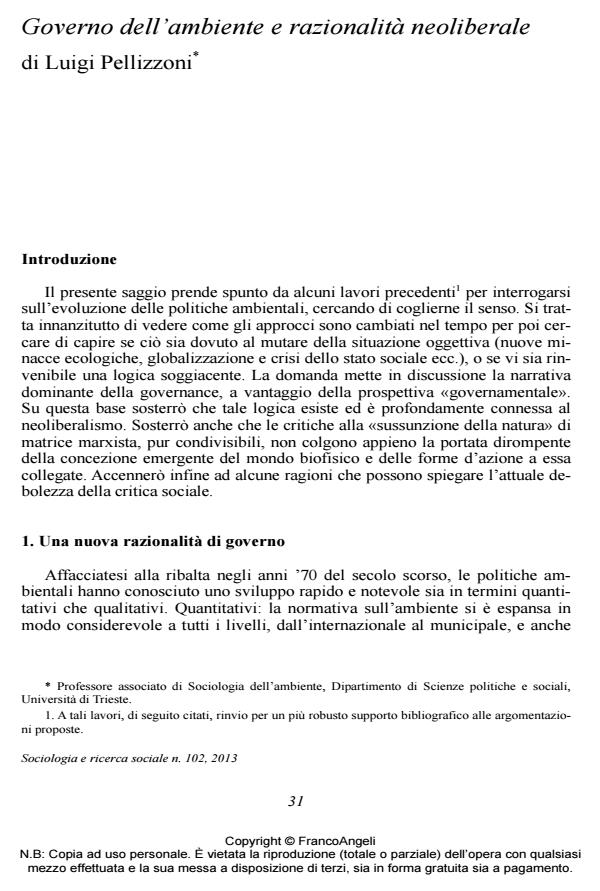Government of the Environment and Neoliberal Rationality
Journal title SOCIOLOGIA E RICERCA SOCIALE
Author/s Luigi Pellizzoni
Publishing Year 2014 Issue 2013/102
Language Italian Pages 10 P. 31-40 File size 491 KB
DOI 10.3280/SR2013-102003
DOI is like a bar code for intellectual property: to have more infomation
click here
Below, you can see the article first page
If you want to buy this article in PDF format, you can do it, following the instructions to buy download credits

FrancoAngeli is member of Publishers International Linking Association, Inc (PILA), a not-for-profit association which run the CrossRef service enabling links to and from online scholarly content.
In the environmental field the traditional opposition between state and market has been gradually sidestepped by complex forms of intervention, where both terms change their meaning. A governmental perspective, rather than a governance one, is more useful in providing indications to understand the stakes of what appears to be a profound transformation in the way humans conceive the biophysical world and their relations with it, in which the hegemony of neoliberalism and its rationality of government play a crucial role. This process challenges the conceptual equipment of the social sciences. The current «return» to material reality does not necessarily lead to an adequately critical perspective
Luigi Pellizzoni, Governo dell’ambiente e razionalità neoliberale in "SOCIOLOGIA E RICERCA SOCIALE " 102/2013, pp 31-40, DOI: 10.3280/SR2013-102003